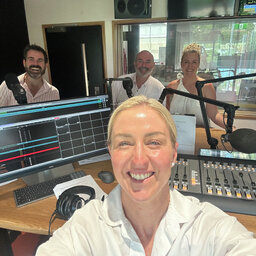CDU Pro Vice-Chancellor and Chief Executive TAFE Michael Hamilton says there’s been an increase in enrolments, adding that apprenticeship numbers are up about 10 per cent, with strong growth in regional and remote driven by Indigenous students
No description provided
 360 with Katie Woolf
360 with Katie Woolf


